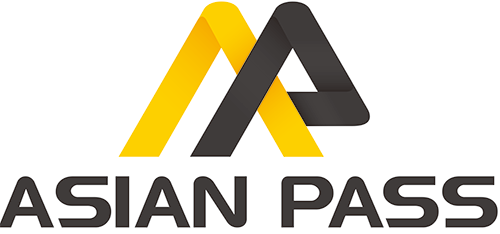What is a focal point on expenditure? What requirements does the accounting unit organizing the focal point on expenditure under the unit ensure? Can the accounting unit use the abbreviated unit when preparing or publicizing financial statements? What are the 15 prohibited acts in accounting? Let’s find out with Pham Consult

What is a focal point on expenditure? What requirements does the accounting unit organizing the focal point on expenditure under the unit ensure?
Pursuant to Article 3 of Circular 24/2024/TT-BTC, accounting units, dependent accounting units and focal points are regulated as follows:
Accounting units, dependent accounting units and focal points
1. An accounting unit is a unit subject to Article 2 of this Circular that has economic and financial transactions arising, opens accounting books, conducts accounting and prepares financial statements in accordance with the provisions of this Circular.
2. Depending on the scale of the organizational apparatus and the nature of its operations, an accounting unit may organize dependent accounting units and expenditure focal points directly under the unit to ensure the principles of streamlining and efficiency.
a) A dependent accounting unit is a subordinate unit of the accounting unit, which is allowed to perform certain accounting tasks as assigned by the accounting unit, and must provide information and data at the end of the period for the accounting unit to prepare financial statements in accordance with the provisions of this Circular.
b) The expenditure focal point is a subordinate unit of the accounting unit and does not perform accounting work. All economic and financial transactions arising at the expenditure focal point must be accounted for and recorded in the accounting books at the accounting unit. The preparation and circulation of accounting documents of the expenditure focal point shall be carried out according to the instructions of the accounting unit.
Accordingly, the expenditure focal point is a subordinate unit of the accounting unit and does not perform accounting work. All economic and financial transactions arising at the expenditure focal point must be accounted for and recorded in the accounting books at the accounting unit. The preparation and circulation of accounting documents of the expenditure focal point shall be carried out according to the instructions of the accounting unit.
And, depending on the scale of the organizational apparatus and the nature of the activities, the accounting unit may organize expenditure focal points under the unit to ensure the principle of streamlining and efficiency.
Is the accounting unit allowed to use the abbreviated unit of calculation when preparing or publicizing financial statements?
Pursuant to Article 10 of the 2015 Law on Accounting, it is stipulated as follows:
Unit of measurement used in accounting
…
An accounting unit that mainly collects and spends in a foreign currency may choose that foreign currency as the accounting currency, is responsible before the law and notifies the directly managing tax authority. When preparing financial statements for use in Vietnam, the accounting unit must convert to Vietnamese Dong at the actual exchange rate, unless otherwise provided by law.
2. The physical unit and the labor time unit used in accounting are the legal units of measurement of the Socialist Republic of Vietnam; in case the accounting unit uses another unit of measurement, it must be converted to the legal units of measurement of the Socialist Republic of Vietnam.
3. The accounting unit is allowed to round numbers and use abbreviated units of measurement when preparing or publicizing financial statements.
4. The Government shall detail and guide the implementation of this Article.
Accordingly, Accounting Units are allowed to use abbreviated units when preparing or publicizing financial statements.
What are the 15 prohibited acts in accounting?
According to Article 13 of the 2015 Accounting Law, the prohibited acts in accounting are as follows:
– Forging, falsifying or agreeing to, forcing others to forge, falsify, or erase accounting vouchers or other accounting documents.
– Intentionally, agreeing to, or forcing others to provide or confirm false accounting information and data.
– Leaving out of the accounting books assets and liabilities of the accounting unit or related to the accounting unit.
– Destroying or intentionally damaging accounting documents before the end of the retention period specified in Article 41 of the 2015 Accounting Law.
– Issuing or promulgating accounting standards and accounting regimes without proper authority.
– Bribing, threatening, bullying, or forcing accountants to perform accounting work that is not in accordance with the provisions of the 2015 Accounting Law.
– A person responsible for managing and operating an accounting unit who also acts as an accountant, storekeeper, or cashier, except for private enterprises and limited liability companies owned by an individual.
– Arranging or hiring an accountant or chief accountant who does not meet the standards and conditions specified in Articles 51 and 54 of the 2015 Accounting Law.
– Renting, borrowing, leasing, or lending an accountant’s certificate or a certificate of registration to practice accounting services in any form.
– Establishing two or more financial accounting systems or providing or publishing financial reports with inconsistent data in the same accounting period.
– Providing accounting services without being granted a Certificate of eligibility to provide accounting services or providing accounting services without ensuring the conditions specified in this Law.
– Using the phrase “accounting services” in the name of an enterprise if it has been more than 06 months since the date of being granted the Certificate of Business Registration but still has not been granted the Certificate of eligibility to conduct accounting services or the enterprise has ceased to conduct accounting services.
– Hiring individuals or organizations that do not meet the conditions for practicing or conducting accounting services to provide accounting services to their unit.
– Practicing accountants and accounting service enterprises collude with customers to provide and confirm false accounting information and data.
– Other prohibited acts according to the provisions of law on preventing and combating corruption in accounting activities.
– Hiring individuals or organizations that do not meet the conditions for practicing or conducting accounting services to provide accounting services to their unit.
– Practicing accountants and accounting service enterprises collude with customers to provide and confirm false accounting information and data.
– Other prohibited acts according to the provisions of law on preventing and combating corruption in accounting activities.
Comments




 VI
VI